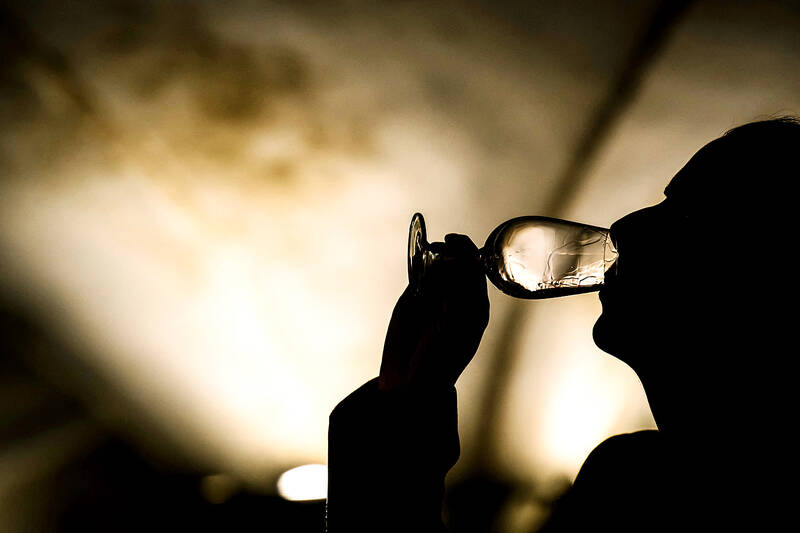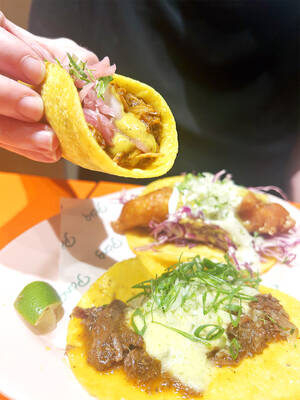Mixed news last week for wine drinkers. Research by scientists at Rush Medical Center in Chicago claims that a glass of red with dinner could slash your risk of developing dementia. Just don’t start too young, say rival researchers at the Uniformed Services University in Maryland, who claim that children who are given even a sip of l’eau rouge — water reddened by wine — are more likely to end up with addiction problems.
Perhaps the answer, then, is for the children to drink natural wine, which might be at least good for their digestive system, according to another study. Or barolo, the preferred grape of “emotionally stable” drinkers, according to an investigation into links between wine preference and personality by researchers at Italian universities.
Either way, if you are among the 60 percent who are now “sober curious” — intention, rather than action, being the operative here — the chances are you’ll be decanting your cellars into your moisturizer, as Brad Pitt does with his new wine-inspired skincare line, Le Domaine. So long as everyone avoids Buckfast wine. Sales are up in Scotland, leading some to (incorrectly) fear an increase in crime. Happy fortified wine season, one and all.

Photo: AFP
These are all reports from the news last week. Reports that might lead you to need a glass of chablis if only to offset the last item. Because there are few things that capture the Western imagination like the pros and perils of drinking wine. There may well be something in the often contradictory science, but the fact it’s investigated in the first place suggests there’s a market for the results. Gin might be mother’s ruin, but it’s wine that will finish off the rest of us.
“Wine pushes people’s buttons,” agrees Aaron Ayscough, a well-regarded American wine writer living in Paris. “Readers tend to have an emotional response to it. Probably because [it is] laden with two, often contradictory associations: that of luxury, and that of a rural, pastoral milieu. When we examine wine as a dietary component, we are making an implicit appeal to the wisdom of a [lost] rural past.”
“Everyone is chasing a notion of pastoral lifestyle purity that has become immensely valued today precisely because it has mostly vanished in contemporary society,” says Ayscough. Wine’s centrality to that vision of a lost idyll is part of its symbolic potency. And if you like drinking wine and see the drinking of wine as being part of your character, you’re not going to like being told you shouldn’t be doing it.
Last year, the UK produced 67,097 hectolitres (one hectolitre equals about 133 bottles). Italy, however, produced more than 50 million. Climate change might alter this. But wine is still a symbol of the other, the exotic.
It’s the stuff of rural holidays and European dining, but there’s also an idea that it’ll get you drunk in an acceptable, but cleansing way. For some middle and upper-middle-class baby boomers, this is pretty much a philosophy to live by.
“Wine, and particularly natural wine, has become a potent symbol within this cultural phenomenon,” Ayscough says.
It’s also, increasingly, pan-generational, recently acquiring a sort of millennial/hipster following. Annabel’s, which calls itself “one of the most elegant clubs in the world,” has just launched wine nights for younger clients. @dalstonwineclub, a fun women-led initiative, run Beaujolais nights and feature shots of wine bottles on its Instagram, run through a soft filter. There’s a wine shop down the road from me whose name is written in bubble writing but which I’m too intimidated to enter, despite being its target audience.
Class-association is the thing that no one wants to talk about. My generation grew up with Lambrini girls, while Gen Z apparently prefer Whispering Angel, a sparky rose Adele raves about. My friends and I dabbled in both. But Whispering Angel is not cheap. It just positions itself as fun rather than earnest.
Wine might be widely drunk, but there is still an idea, however old-fashioned, that it’s bourgeois to drink it. The idea of the wine connoisseur who sniffs the bouquet and knows the pH has been a staple comic figure for decades.
“Americans, in my experience, have way less class anxiety when it comes to wine. We’re indoctrinated with a vast sense of consumer entitlement. If it’s for sale, it’s not above our station in life,” Ayscough says.
That it’s become the acceptable face of drinking is bound to invite tabloid hand-wringing. Despite the closure of bars and pubs, we purchased as much alcohol during the pandemic as before it. It’s a logic that got filtered through our collective desire to keep calm, and carry on drinking, so long as it’s a full-bodied red from the mid-90s viticulture Napa boom. Yet the cultural veneration of wine tends to mean that hitting wine bottles is seen as more acceptable than hitting cans.
Ayscough says it’s best to ignore the press.
“I find most of it riddled with sneering class distinctions,” he says. “It feels like spectating on a sad dinner party composed of people who dislike one another.”

Sept.16 to Sept. 22 The “anti-communist train” with then-president Chiang Kai-shek’s (蔣介石) face plastered on the engine puffed along the “sugar railway” (糖業鐵路) in May 1955, drawing enthusiastic crowds at 103 stops covering nearly 1,200km. An estimated 1.58 million spectators were treated to propaganda films, plays and received free sugar products. By this time, the state-run Taiwan Sugar Corporation (台糖, Taisugar) had managed to connect the previously separate east-west lines established by Japanese-era sugar factories, allowing the anti-communist train to travel easily from Taichung to Pingtung’s Donggang Township (東港). Last Sunday’s feature (Taiwan in Time: The sugar express) covered the inauguration of the

The corruption cases surrounding former Taipei Mayor and Taiwan People’s Party (TPP) head Ko Wen-je (柯文哲) are just one item in the endless cycle of noise and fuss obscuring Taiwan’s deep and urgent structural and social problems. Even the case itself, as James Baron observed in an excellent piece at the Diplomat last week, is only one manifestation of the greater problem of deep-rooted corruption in land development. Last week the government announced a program to permit 25,000 foreign university students, primarily from the Philippines, Indonesia and Malaysia, to work in Taiwan after graduation for 2-4 years. That number is a

This year’s Michelin Gourmand Bib sported 16 new entries in the 126-strong Taiwan directory. The fight for the best braised pork rice and the crispiest scallion pancake painstakingly continued, but what stood out in the lineup this year? Pang Taqueria (胖塔可利亞); Taiwan’s first Michelin-recommended Mexican restaurant. Chef Charles Chen (陳治宇) is a self-confessed Americophile, earning his chef whites at a fine-dining Latin-American fusion restaurant. But what makes this Xinyi (信義) spot stand head and shoulders above Taipei’s existing Mexican offerings? The authenticity. The produce. The care. AUTHENTIC EATS In my time on the island, I have caved too many times to

In a stark demonstration of how award-winning breakthroughs can come from the most unlikely directions, researchers have won an Ig Nobel prize for discovering that mammals can breathe through their anuses. After a series of tests on mice, rats and pigs, Japanese scientists found the animals absorb oxygen delivered through the rectum, work that underpins a clinical trial to see whether the procedure can treat respiratory failure. The team is among 10 recognized in this year’s Ig Nobel awards (see below for more), the irreverent accolades given for achievements that “first make people laugh, and then make them think.” They are not